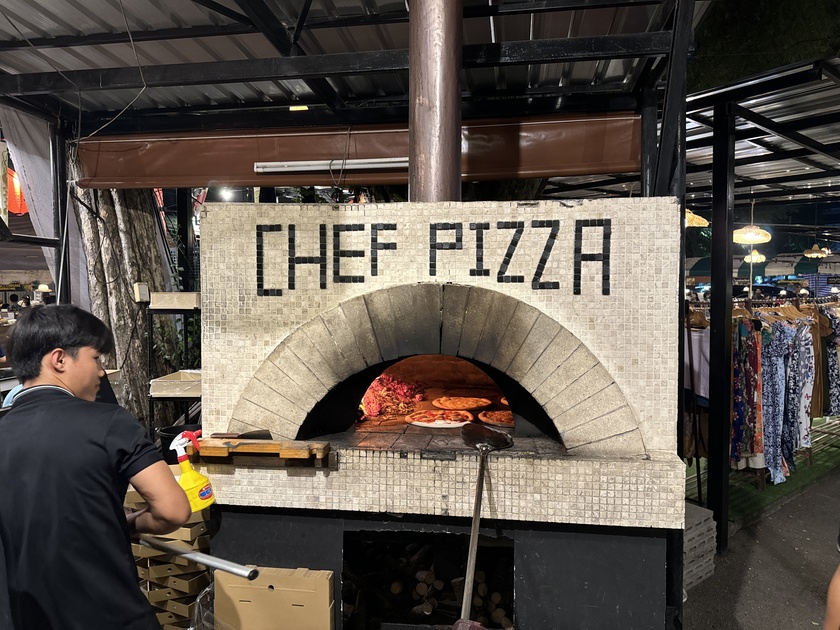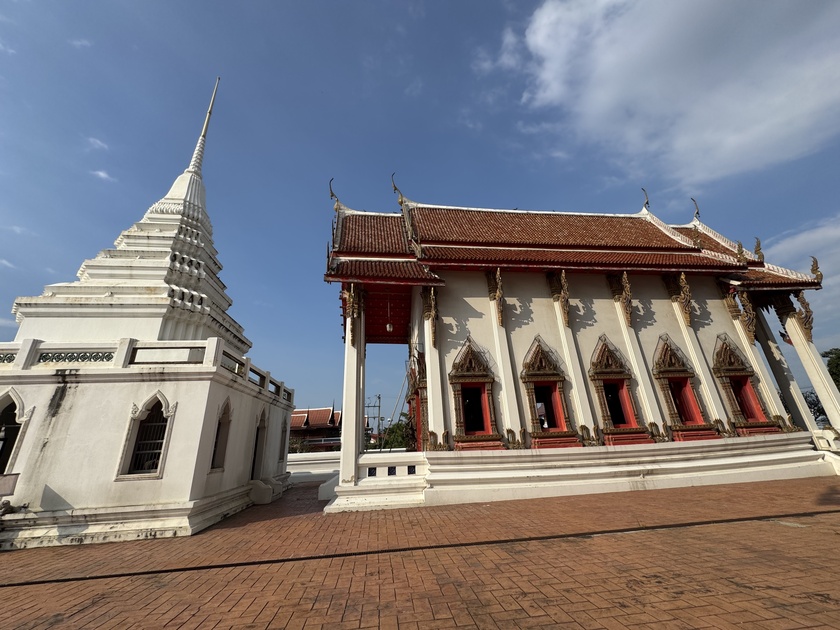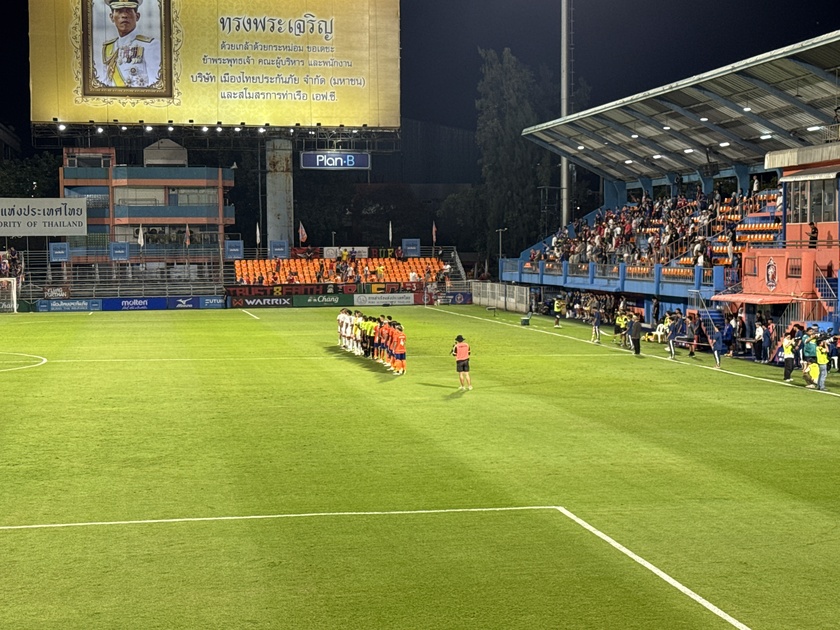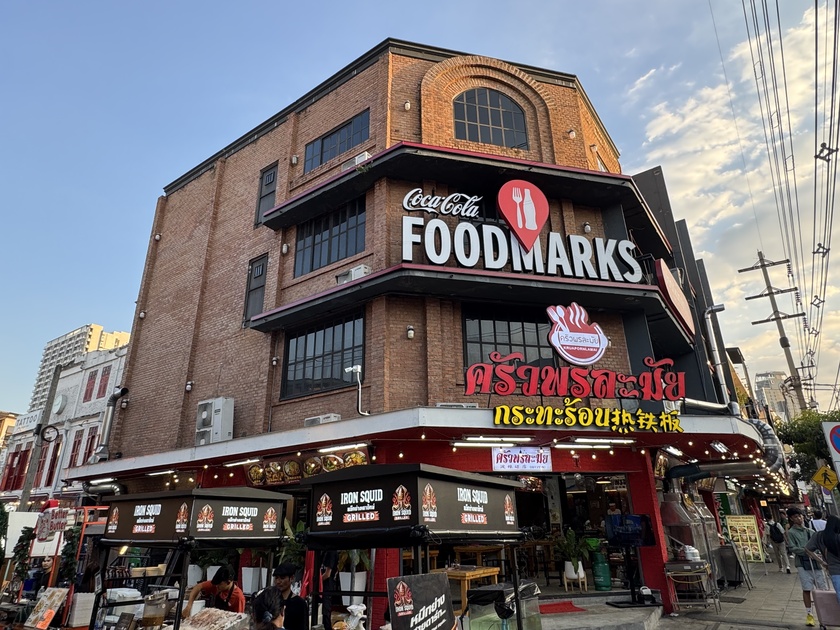Tamarind Market in Hua Hin ทามารีน มาเก็ต
Just to the south of the Cicada market, the Tamarind Market is another Hua Hin night market only open at the end of the week. It is located on the outskirts of the city center on the road to Khao Takiab.
There is a stage with live music and seemingly endless number of food and drink stalls. You have a wide choice that ranges from kababs to Thai dishes to pizza.. You can eat very well for cheap, even if prices are a bit above the prices of less touristy night markets in Thailand and can do so in a nice atmosphere.
Don't expect to buy souvenirs, the stalls here offer almost only food and drinks. The difficulty, on the other hand, will sometimes be to find a place to sit to enjoy your dinner. Personally I'd rather eat at Tamarind Market than at Cicada Market but a good weekend would be to sample both Markets.
Tamarind Market ทามารีน มาเก็ต - Hua Hin Thailand 2024
Wat Phra Khao (วัดพระขาว), located in Phra Khao Subdistrict, Bang Ban District, Phra Nakhon Si Ayutthaya Province, is an ancient active Buddhist temple believed to have been established during the Ayutthaya period (likely around the mid-18th century AD, with some estimates placing it circa 1707 AD based on traditional accounts). The temple’s name derives from its principal Buddha image, Luang Pho Khao (หลวงพ่อขาว), a large stucco statue painted white that has been venerated since ancient times.
The temple received its official wisungkhamasima (consecrated ordination hall boundary) on September 27, 1927 AD. Unlike many temples in central Ayutthaya that were destroyed in the fall of the kingdom in 1767 AD, Wat Phra Khao survived largely intact, preserving rare Ayutthaya-era kasat lai rot nam (gold leaf stencil murals) inside the ubosot—considered some of the finest and most elaborate examples from that period. These intricate wall paintings, along with ...
The Chang FA Cup, officially the Thai FA Cup, is Thailand’s premier knockout football competition, organized by the Football Association of Thailand. First held in 1974, it ran intermittently until 1999 before being discontinued and relaunched in 2009 to revive national cup football. Sponsored by Chang Beer since 2015, it has become known as the Chang FA Cup. The tournament is open to clubs from all levels of Thai football, offering lower-division teams a chance to upset top-tier sides. The winner qualifies for the AFC Champions League Elite qualifying play-off and the Thailand Champions Cup, with the champion receiving a prize of 5 million baht.
Port FC, based in Bangkok, is a historic club founded in 1967, originally linked to the Port Authority of Thailand. They play their home games at PAT Stadium. Port has established itself as a consistent force in the Thai League 1 since returning to the top flight in 2017, with strong performances in recent seasons, including qualification for ...
Dragon Town Night Market
Dragon Town Night Market, also known as the vibrant Chula Night Market (or Sam Yan Market) near Chulalongkorn University, is a lively central spot that bursts into life after dark. This compact, student-favored area features rows of glowing stalls offering authentic Thai street food like spicy noodles, grilled meats, fresh seafood, and creamy desserts. The atmosphere blends traditional flavors with a youthful energy—think colorful lights, aromatic street eats, and a mix of locals and visitors. It’s a great showcase of Bangkok’s casual, university-driven food culture, with everything from classic som tam to innovative fusion bites.
Joy Fest Night Market
Joy Fest Night Market is a festive pop-up night market running through late December 2025, with stalls set up until December 30. This holiday-themed event focuses on joyful vibes with a wide array of street food vendors serving seasonal treats, international snacks, and classic Thai dishes. Expect a warm, celebratory ...




















































